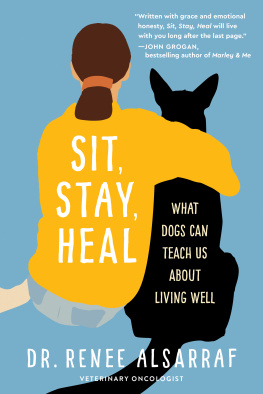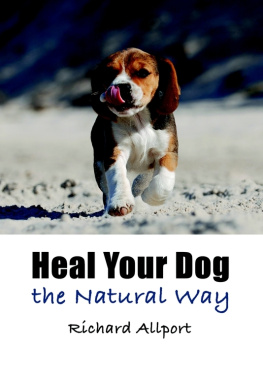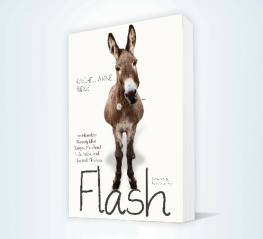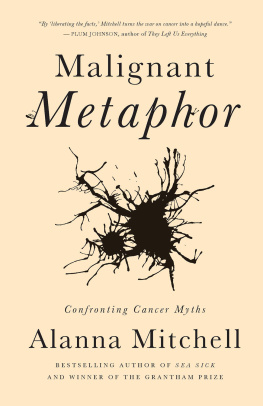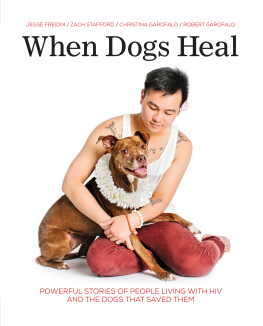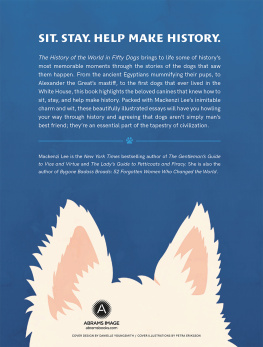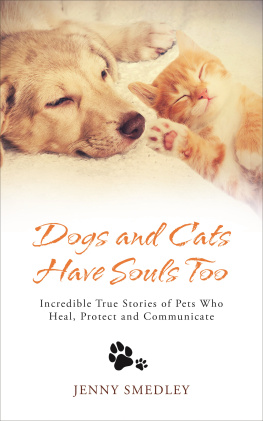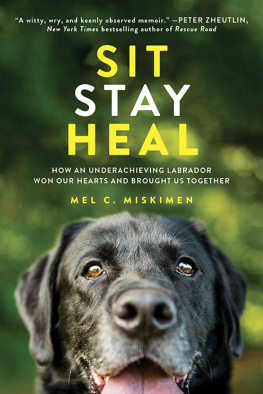I have found that when you are deeply troubled, there are things you get from the silent devoted companionship of a dog that you can get from no other source.
Scars are beautiful when we see them as glorious reminders that we courageously survived.
F or the past twenty-nine years, I have worked as a veterinary oncologist. Basically, I treat animals with cancer, primarily dogs and cats, but sometimes an occasional ferret, rabbit, bird, or guinea pig.
People always ask me, How can you do what you do? They think cancer in animals is too sad to be a full-time job. They are surprised to hear me say I experience much more happiness than sadness. I consult on cases, I provide chemotherapy, I offer radiation therapy, and I might even recommend surgery. I try to give pet parents realistic hope, another summer or perhaps a few years of good quality time. It is an emotionally draining profession, yet it fills me right back up.
Veterinary patients dont speak to us in words, and so veterinarians use empathyalong with laboratory teststo find out whats ailing them, and assist them in recovery. Even without words, animals make their feelings known: wagging their tails, giving us kisses, or perhaps growling and baring their teeth. When I can make them feel better it makes me feel better. In fact, it makes me feel joy.
Pets are amazing. Indeed, the word pet seems inadequate to describe the special role and deep bond that animals have with their human families. They provide unconditional love when the world feels harsh. We rely on them and even lean on them.
I am fortunate enough to see this human-animal bond in its deepest forms. The power of that bond transcends money, age, and race, and it is without judgment. In some instances, a relationship with a pet may be the only circumstance in which a person feels completely comfortable and loved. There is no shame with an animal, no reason to put on a front. Our four-legged companions accept us as we are, and understand much more than we generally give them credit for.
Some people, however, do not know this bond. Or maybe they dont understand it. Or perhaps they havent allowed themselves to feel it. Such nonanimal people will chastise the devoted pet owner, asking: How can you spend that kind of money to treat a dogs cancer when you could just get another dog? Sadly, I have been asked that question numerous times. But animal people understand the truthour pets are not replaceable; they are not appliances. Theyre living, breathing, innocent beings who fill a role in our lives, in my life.
In the veterinary world, happy dogs go right on being happy when theyre first diagnosed. They chew on their bones, bark at the mail carrier, and continue to try to sneak up on the sofa even if they are not supposed to be up on furniture. It is their human family who struggles to deal with the emotions of their pets condition.
Ive sat with many families, counseling them through their love and their grief focused on the mortality of their beloved animal. Their pets never understand why their human is so sad. Were told that were different from animalssome would even say superior to them. We have a conscience, and we can think as well as feel. Perhaps, though, we could take a cue from the four-legged among us. All cats and dogs live in the moment, carefree. They do not waste the present, worried about what might happen in the future. Or how much longer they have to live. We spend a lot of time on the what-ifs, fretting about potential outcomes. I can fret with the best of them. But when has fretting ever really helped us? Cant say its helped me.
As much as I would like to emulate my animal patients ability to live in the moment, sometimes that moment is really hard to take. I say that as the car pulls up to let me out at the cancer treatment center. Its a large gray building, bustling with doctors and nurses and support staff. I am not here to work. Today, I am the patient.
Thats right: Im a veterinary oncologist with metastatic cancer. Im the animal cancer doc with a diagnosis of my own, which is why Ive come to the large gray building. Now it is my time to go through what so many before me have gone through: the C word.
I hate the name of my disease. I work to treat cancer every day, and yet when it comes to the diagnosis for myself, I can only call it the C word. Dysfunctional? Perhaps. But I detest the word cancer. It produces instant anxiety and fear in people, and I am no exception. Having this disease has felt like a sucker punch, one that I never, ever expected.
I am not owning the struggle. It is not anything that Ive asked for, but I will fight it with all that Ive got. Now that I face this diagnosis myself, I will approach the battle relentlessly, wholly. I dont like to need help, and Im not good at asking for it. However, I know Ill need it along the way, as will my family. When I slip off my mental train tracks, I have asked my friends to prop me back up. Im supposed to be the mom who quizzes her son before big tests at school. The mom who guides him through his college applications. But if Im sick from treatment, I wont be able to play that role. Will he have to take care of me? Will he pity me? Be ashamed of me?
Im prepared for any battle as long as I have hope. If I receive devastating news, at least Ill know that in the too-little time Ive had here on Earth, Ive tried to make my part of it a better place. Ive loved my child and my husband wholeheartedly. And I will always cherish my friends. I am extremely grateful to have been able to work in the field that I do. I have learned so much from my animal patients over these years. Ive laughed with their owners, cried with their owners, and loved giving families more quality time with their beloved animals. But now Im hoping for just a little more time of my own.
I t has been a stressful mom morning. My husband, Mike, has taken off much earlier. Lucky man. I am left with a high school boy whose last desire is to get out of bed and a dog who decided to get into the garbage that my dear son was supposed to have taken out last night. I frantically clean up while shouting for Peter to get ready to leave for school before he is marked tardyagain. I drive into work with a white-knuckle grip on the steering wheel.
Finally, I make it to work, a bit crabby, a bit stressed, but here. My 9:00 a.m. appointment slot is a new case. By 9:15 a.m. Im getting antsy: Wheres the appointment? I hate to run late. It stresses me, or, I should say, I allow it to stress me, because a late client potentially can put me behind schedule for the entire day. Just as I go up front to the waiting room to check, in walks a smiling blond woman with her hands full. Shes a bit disheveled, but happy and doing the best she can, pushing what I initially thought was a large metal stroller, struggling to get the device over the doorframe. On second glance, I see that its not a stroller but a wheelchair for her nine-year-old child, Kathy. The girl is held in place by safety belts. Tugging at the end of a leash is a panting and eager eleven-year-old cocker spaniel, dressed in a blue princess dress, like Elsa from Frozen

